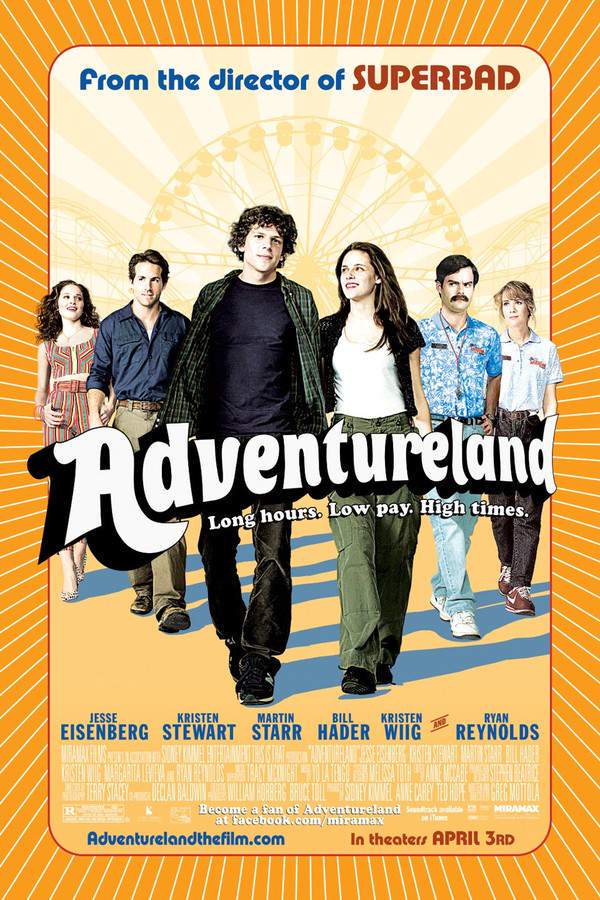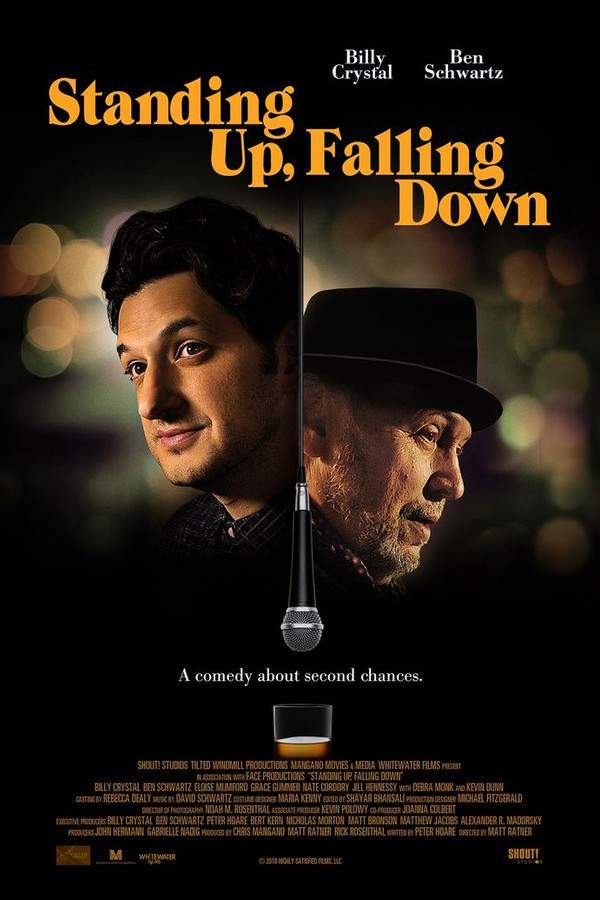
Stand by Me 1986
Made by

Columbia Pictures
Test your knowledge of Stand by Me with our quiz!
Stand by Me Plot Summary
Read the complete plot summary and ending explained for Stand by Me (1986). From turning points to emotional moments, uncover what really happened and why it matters.
A man, portrayed by Richard Dreyfuss, finds himself in his car perusing a newspaper headline detailing a brutal stabbing at a fast food joint. Overcome by nostalgia, he recalls his childhood and the significant event when he first encountered death at the tender age of 12.
The story centers around Gordon “Gordie” Lachance, played by Wil Wheaton, who is indulging in a game of cards within a treehouse alongside his closest pals Chris Chambers and Teddy Duchamp, portrayed by River Phoenix and Corey Feldman, respectively. Each boy carries a unique backstory and reputation. Chris, burdened by his troubled family’s reputation for dishonesty and violence, strives to be a better person while grappling with the long shadow of his lineage. Teddy, with a somewhat oddball essence, bears the physical scars of his father’s instability, having been burned by him during a time of great distress. His father resides in a mental institution, yet Teddy speaks proudly of him as a war hero. Meanwhile, the overweight Vern Tessio, played by Jerry O’Connell, desperately seeks entrance into their game, claiming to have crucial news. The group falls silent when Vern mentions having overheard that his brother Billy and a friend found the body of Ray Brower, a boy who had gone missing. The boys are instantly intrigued, realizing that Ray was their age and had vanished while blueberry picking.
Driven by the desire for adventure and the prospect of being local heroes, they plan to locate the body, convincing their parents that they’ll have sleepovers at each other’s homes. As morning dawns, Gordie confronts a stark reality—his older brother, Denny, has died in an accident, and his family is emotionally fractured. His mother is silent, and his father harshly compares him to Denny, expressing disappointment in his aspirations to be a writer.
Gordie’s journey unfolds as he and Chris stumble upon a gun that Chris has stolen from his dad. What ensues is a harrowing encounter with a gang led by Ace Merrill, played by Kiefer Sutherland, who menaces them but ultimately allows them to go free. As they trek to the train tracks with hopes of adventure, they almost meet with tragedy when Vern loses his comb on the bridge, leading to a panic-filled escape just ahead of an oncoming train.
On their quest, the boys face various adventures, including a near-collision with the infamous dog Chopper at a junkyard. Much to their horror, a confrontation at the leeches in the swamp brings them face to face with their own fears and vulnerabilities. As night falls, Gordie entertains them with a wild story about a character named Lardass Hogan, whose tale of revenge provokes laughter and temporary distraction from their larger concerns.
The next day, Ace’s gang learns of their mission and pursues them. As they finally discover Ray’s body, tension escalates with Ace demanding to take charge. Gordie’s courage shines when he fires the gun, compelling Ace’s gang to retreat. They collectively decide that they will not seek recognition for the gruesome find, opting for anonymity instead.
Ultimately, as Gordie reflects on their harrowing adventure, he narrates the fates of his friends. While Vern becomes a family man and Teddy bounces between jobs, Chris manages to pursue law yet meets a tragic end, echoing the very newspaper headline that sparked Gordie’s memories. In closing, Gordie, now a writer, resumes his life by heading out with his son and a friend, eager to share joy. The narrative captures not merely the innocence of childhood but the profound impacts of friendship, loss, and the bittersweet passage into adulthood.
Stand by Me Timeline
Follow the complete movie timeline of Stand by Me (1986) with every major event in chronological order. Great for understanding complex plots and story progression.
Stabbing Incident
A man reads a newspaper headline about a brutal stabbing at a fast food joint, sparking feelings of nostalgia. This headline serves as a catalyst for remembering his childhood and the moments when he first encountered death.
Gordie's Treehouse Card Game
Gordon 'Gordie' Lachance and his friends Chris and Teddy are playing cards in their treehouse. Each boy reveals their unique backgrounds and struggles, enriching their friendships and setting the stage for the adventure to come.
Vern's Revelation
Vern Tessio interrupts the game, claiming he has important news. He reveals that his brother Billy and a friend found the body of Ray Brower, a boy who went missing, which captivates the group's attention.
Decision to Find Ray
The boys, fueled by curiosity and a desire for adventure, decide to seek out Ray's body. They cleverly convince their parents they’ll be sleeping over at each other's homes to embark on their journey.
Gordie's Family Tragedy
Gordie is confronted with the reality of his family's grief when his brother Denny has died in an accident. The emotional turmoil within his home leaves Gordie feeling isolated and unsupported.
Encounter with the Gun
During their journey, Gordie and Chris stumble upon a stolen gun that belongs to Chris's father. This discovery adds a layer of danger to their adventure and foreshadows the conflicts ahead.
Confrontation with Ace's Gang
The boys have a terrifying encounter with Ace Merrill and his gang, who threaten them. However, after a tense standoff, Ace lets them go, heightening the stakes of their adventure.
Train Bridge Incident
As the boys traverse a bridge, Vern loses his comb, leading to a panic as a train approaches. This near-tragic moment forces them to confront their fears and work together to escape.
The Junkyard Encounter
The boys face a daunting challenge when they encounter Chopper, a fierce dog, at a junkyard. This moment serves as a test of their bravery and camaraderie, as they must face their fears together.
Nighttime Storytelling
As night falls, Gordie entertains his friends with a humorous story about Lardass Hogan. This moment provides a brief escape from their worries and highlights the bonds of friendship.
Discovery of Ray's Body
Their quest culminates in the discovery of Ray Brower's body. This shocking revelation brings a mix of emotions as they confront the realities of death and the implications of their find.
Showdown with Ace
Ace's gang arrives as tensions rise around the body of Ray. Gordie demonstrates his courage by firing the gun, leading Ace's gang to retreat, reinforcing the themes of bravery and friendship.
Decision to Keep Quiet
In the wake of their discovery, the boys collectively decide to keep the finding of Ray's body a secret. This choice signifies their growth and maturity as they grapple with the moral implications of their adventure.
Fates of the Friends
Reflecting on their journey, Gordie narrates the subsequent paths of his friends. While Vern becomes a family man and Teddy struggles with employment, Chris tragically dies, echoing a theme of loss.
Gordie's New Chapter
Years later, Gordie has become a writer and recalls the impact of that summer. He sets out with his son and a friend, illustrating the cycle of life and the enduring nature of cherished memories.
Stand by Me Characters
Explore all characters from Stand by Me (1986). Get detailed profiles with their roles, arcs, and key relationships explained.
Gordon 'Gordie' Lachance
Gordie is a sensitive and introspective boy whose journey revolves around self-discovery and dealing with his family's trauma. He is talented, with aspirations of becoming a writer, but struggles against his father's expectations and the profound loss of his brother. Gordie's character embodies resilience as he learns to confront his fears and embrace his identity.
Chris Chambers
Chris is the loyal friend, burdened by his family's troubled past yet striving for a better future. He is often the voice of reason in the group, embodying a strong moral compass. Chris's character illustrates the struggle between one's lineage and individual aspirations, ultimately showing that hope can prevail despite hardships.
Teddy Duchamp
Teddy is an eccentric character with a complex background, marked by the scars of childhood abuse. Despite his quirky demeanor, he exhibits courage and loyalty, standing up for his friends. Teddy's relationship with his father provides a lens into issues of identity and acceptance, making him a compelling and sympathetic character.
Vern Tessio
Vern is portrayed as the lovable, somewhat clumsy member of the group who seeks acceptance and belonging. His innocence and earnestness provide comic relief while also highlighting the joys and trials of childhood. Vern's eagerness to be part of the adventure reflects the universal yearning for friendship and connection.
Stand by Me Settings
Learn where and when Stand by Me (1986) takes place. Explore the film’s settings, era, and how they shape the narrative.
Time period
1980s
Set in the 1980s, this period is marked by a sense of innocence in childhood contrasting with the harsh realities of life. The era represents a time when friendships were paramount, yet it also conveys the inevitable onset of adulthood, where loss and responsibility begin to weigh heavily on the young protagonists. Nostalgic sentiments pervade as the boys confront personal and societal challenges.
Location
Treehouse, Junkyard, Train Tracks, Swamp
The story unfolds in various significant locations. The treehouse serves as a sanctuary for the boys, where they share secrets and dreams. A junkyard introduces a sense of danger and adventure, while the train tracks symbolize the boys' journey toward courage and adulthood. The swamp represents both a physical and emotional challenge, as they face their fears in a vulnerable setting.
Stand by Me Themes
Discover the main themes in Stand by Me (1986). Analyze the deeper meanings, emotional layers, and social commentary behind the film.
🤝
Friendship
Friendship is at the heart of 'Stand by Me.' The bond between the four boys provides strength and a sense of purpose as they navigate life's challenges. Their connection deepens through shared experiences and the pursuit of something greater than themselves, illustrating the lasting impact of childhood friendships as they transition into adulthood.
💔
Loss
The theme of loss permeates the narrative, particularly through Gordie's grief over his brother's death. Each character carries their own burdens of loss, reflecting how it shapes their identities. The story poignantly captures the innocence of youth overshadowed by the harsh realities of life, reminding viewers of the fragility of relationships.
⚔️
Courage
Courage manifests in the boys as they embark on an adventure fraught with risks. They confront not only external dangers, like Ace’s gang, but also their internal fears. Gordie's ultimate act of bravery serves as a turning point, emphasizing that true courage is often measured not by the absence of fear but by the will to face it.

Coming soon on iOS and Android
The Plot Explained Mobile App
From blockbusters to hidden gems — dive into movie stories anytime, anywhere. Save your favorites, discover plots faster, and never miss a twist again.
Sign up to be the first to know when we launch. Your email stays private — always.
Stand by Me Spoiler-Free Summary
Discover the spoiler-free summary of Stand by Me (1986). Get a concise overview without any spoilers.
In the summer of 1959, a quiet town in the woods of Maine becomes a place where the ordinary feels almost magical. The air is thick with the scent of pine and the distant hum of train tracks, while the long days stretch into evenings painted with fireflies. This backdrop creates a gentle, nostalgic tone that watches the transition from childhood innocence to the uneasy edge of adulthood, inviting the audience to linger in the quiet moments as much as the larger ones.
The story gathers around four boys whose lives intersect on the brink of something larger than themselves. Gordie Lachance is thoughtful and a budding storyteller, carrying the weight of recent family loss that makes him both fragile and determined. Chris Chambers bears the reputation of his family’s troubled past, striving to prove that he can be more than the expectations placed on him. Teddy Duchamp moves with a restless energy, his battered pride and love for his absent father giving him a fierce, if sometimes reckless, spirit. Lastly, Vern Tessio, the eager and often overeager newcomer, longs to be accepted and to prove he belongs to the group. Together they form a knot of friendship that feels both ordinary and extraordinary, each boy bringing a distinct voice to the shared adventure.
When word spreads through the town about a missing boy of their own age, the quartet sees a chance to step beyond the familiar confines of their neighborhoods. The rumor becomes a catalyst, urging them to test the limits of the woods, their courage, and the ties that bind them. Their planned trek promises both the thrill of discovery and the quiet reflection that comes from confronting the unknown, hinting at moments of humor, tension, and the bittersweet realization that some journeys change us forever.
The film’s tone is a blend of wistful reminiscence and quiet tension, captured through lush cinematography that frames the rugged Maine landscape as both playground and proving ground. As the boys set out, the audience is left with a sense of anticipation—wondering how the simple promise of an adventure will shape their friendships, reveal hidden strengths, and echo long after the final step is taken.
Can’t find your movie? Request a summary here.
Movies with Similar Twists and Themes
Uncover films that echo the narrative beats, emotional arcs, or dramatic twists of the one you're exploring. These recommendations are handpicked based on story depth, thematic resonance, and spoiler-worthy moments — perfect for fans who crave more of the same intrigue.
Featured on this page

What's After the Movie?
Not sure whether to stay after the credits? Find out!
Explore Our Movie Platform
New Movie Releases (2026)
Famous Movie Actors
Top Film Production Studios
Movie Plot Summaries & Endings
Major Movie Awards & Winners
Best Concert Films & Music Documentaries
Movie Collections and Curated Lists
© 2026 What's After the Movie. All rights reserved.












